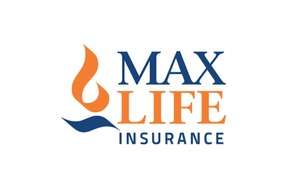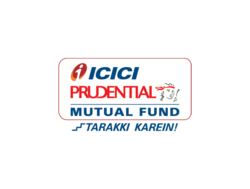Life Insurance insures an individual against the risk of financial loss in case of death. It does not include a savings plan.
Insurance provides financial protection against a loss arising out of happening of an uncertain event. A person can avail this protection by paying premium to an insurance company.
A pool is created through contributions made by persons seeking to protect themselves from common risk. Premium is collected by insurance companies which also act as trustee to the pool. Any loss to the insured in case of happening of an uncertain event is paid out of this pool.
Insurance works on the basic principle of risk-sharing. A great advantage of insurance is that it spreads the risk of a few people over a large group of people exposed to risk of similar type.
Definition
Insurance is a contract between two parties whereby one party agrees to undertake the risk of another in exchange for consideration known as premium and promises to pay a fixed sum of money to the other party on happening of an uncertain event (death) or after the expiry of a certain period in case of life insurance or to indemnify the other party on happening of an uncertain event in case of general insurance.
The party bearing the risk is known as the insurer or assurer and the party whose risk is covered is known as the insured or assured.
Concept of Insurance / How Insurance Works
The concept behind insurance is that a group of people exposed to similar risk come together and make contributions towards formation of a pool
of funds. In case a person actually suffers a loss on account of such risk, he is compensated out of the same pool of funds. Contribution to the
pool is made by a group of people sharing common risks and collected by the insurance companies in the form of premiums.
WHY SHOULD I BUY INSURANCE?
All assets have some economic value attached to them. No person can deny that there is also a possibility that these assets may get damaged/destroyed or become non-operational due to risks like breakdowns, fire, floods, earthquake etc. Different assets are exposed to different
types of risks like a car has a risk of theft or meeting an accident, a house is exposed to risk of catching fire, a human is exposed to risk of death/accident. Insurance is needed because of following reasons:
Social Security Tool
Insurance acts as an important tool providing a sense of security to the society on a whole. It is the right of every human-being to have basic amenities like food, clothing, housing, medical care, standard of living necessary for his personal and family is well being, and right to security in case of unemployment, disability, sickness or any other circumstances out of his control.
In case the bread earner of a family dies, the family suffers from direct financial loss as family is income ceases. As a result, family is economic condition gets affected unless there are other arrangements to rescue the family from this situation. Life insurance is one alternate arrangement that offers some respite to the family from financial distress. Otherwise this family would have been pushed into the lower strata of the society, which would be an additional cost to the society. This is because subsidies would have to be given to the family so as to enable it to survive and enjoy the basic rights at par with other people. Moreover, a poor family is generally seen to have a large family size with family members being illiterate. This on a whole affects the society and is a cost to the society. Therefore, insurance compliments the state in social management efforts.
Uncertainty
The basic need of insurance arises as risks are uncertain and unpredictable in nature. Getting insurance for an asset does not mean that the asset is protected against risks or its exposure to risk is reduced, but it actually implies that in case the asset suffers any loss in value due to such risk, the insurance company bears the loss and compensates the insured by making payment to him.
Economic Development
The premium paid by people to the insurance companies is a part of their savings. Insurance, thus, acts as a useful instrument in promoting savings and investments, particularly within the lower-income and middle-income families. These savings are ultimately used as investments fuelling economic growth.
General Purposes of Insurance
Insurance is widely popular and beneficial because of its following general purposes:
These plans are best suited for people aged upto 35 years as it provides higher protection at low cost.
These plans are also beneficial for a person whose income is low and want to secure their family from financial default in case of his death.
Protection or safety (Term insurances)
Marriage or education of the child (Children plans)
Speedy growth of money & risk cover (Unit Linked Plans)
Saving and Protection (Endowment type plans)
Life Insurance for Tax Benefits
Purchase a life insurance policy which you feel is suitable for you as it not only offers you protection but also offers tax benefits under Section 80C of the Income Tax Act, 1961 and Section 10(10D) of the Income Tax Act, 1961.
There are many life insurance plans out there from various insurance companies that can help you save on tax under various sections of the Income Tax Act, 1961.
Tax can be saved by way of deductions and exemptions, as explained below.
Section 80C:
There are many investments that can help you save on tax under Section 80C, the most popular and beneficial of which is investing in a good life insurance policy.
Section 10 (10D):
The conditions above do not apply to death claims, or any amount received on the death of the life insured.
* The above data is taken from the Income Tax Act, 1961, and tax laws are subject to change. Please check the latest information of tax saving instruments under the abovementioned sections before making any financial decisions. Check with your insurance provider on the tax saving opportunities under various sections before signing your policy document.
Give shape to your investments with our powerful tools & invest now.

Prioritize your financial goals with a customized financial plan!

















Life Insurance is a contract between a insurance policy holderand a life insurance company. Where the insurer promises to pay a designated beneficiary a sum of money (sum assured) in exchange for a premium, upon the death of an insured person or maturity of the policy (depending on the policy contract) .Other events such as terminal illness or critical illness can also trigger payment.
Life Insurance is useful to provide your family with financial security in case circumstance throws you into a situation where you cannot earn or in case of early demise. It helps keep your family financially protected even in your absence. Life insurance policies also helps you save on a regular basis which provides you financial stability.
Life Insurance is not necessary but is a smart decision to make, especially if you have a dependent spouse and children. It offers your family a financial support even after your death. In addition to this, it offers a number of advantages and provides a lot of flexibility on your investment. For example, you can add a critical illness benefit to cover the cost of expenses for surgeries and operations; you can withdraw a part of your maturity benefit in case of an emergency.
The life cover you need depends on your standard of living, income, spending habits, or the goal for which you want to save (i.e. your child’s education or marriage) etc. As the life cover amount acts as a financial security for your family/beneficiaries in your absence, it becomes even more important for you to take an appropriate amount of life cover also taking your current financial liabilities (loans etc.) into consideration.
The cost of life insurance depends on the type of policy you take, , the sum insured , your age, health condition and the benefits you expect to receive when your policy matures.
Yes, there are multiple options available for you to pay your premiums. You can pay your premiums monthly, quarterly, half-yearly or yearly. You can also pay it in one lump sum. However, a monthly premium is the most convenient because the amount is relatively small and it is easier to monitor and be prepared for a more frequent premium payment.
You usually get a grace period, up to 30 days (15 days for monthly mode), to pay your premium once it falls overdue. If you still don’t pay your premium after the grace period your policy stands defunct and you cannot claim any benefits from your policy. However, you can revive your policy once you pay all your overdue premiums subject to certain terms and conditions as per policy and you will again start receiving the benefits of the policy.
In addition to giving you and your family a financial protection, buyinga life insurance policy offers many other benefits such as -
Correct. If you stop premium payments of your policy, it amounts to discontinuation of the policy and you cannot claim any tax benefits. However, if you discontinue paying your premiums after 2 years from the commencement of your policy, the tax will not be deducted on the premium paid in the year when your policy ends. The amount of tax deducted on the premium paid in the preceding year is taxable in the year when the policy terminates.
Schedule If You Want To Have a Tailor-Made Customized Plane.


Made with ❤️ Fadwrap